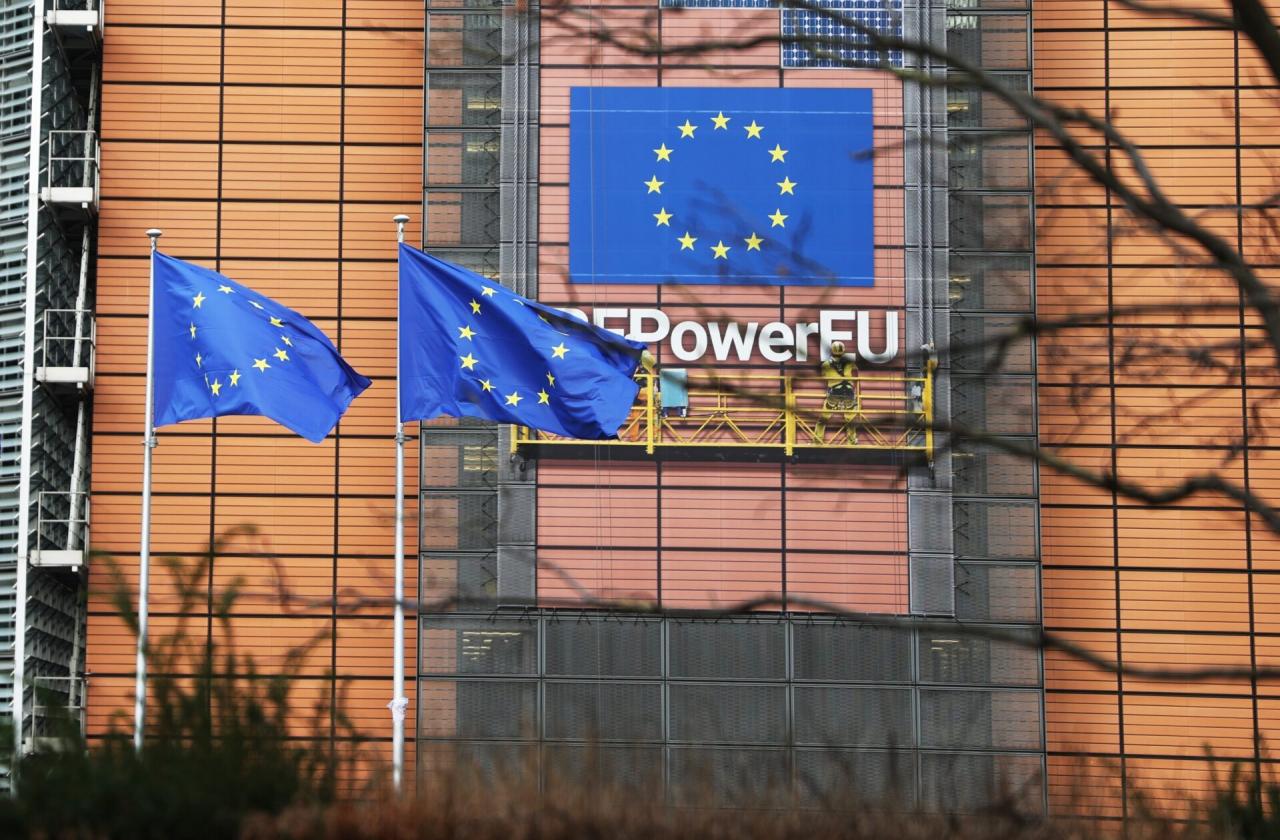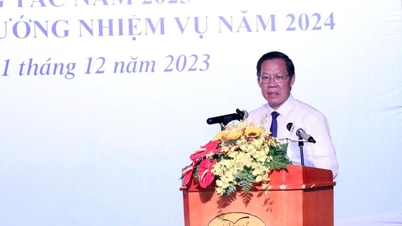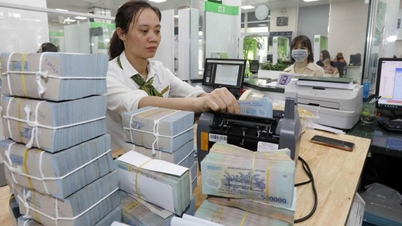Inflation in the eurozone has cooled in recent months to its lowest level in more than two years, raising hopes that the European Central Bank (ECB) may soon abandon its tight monetary policy, paving the way for interest rate cuts. However, most economists believe the ECB will keep interest rates steady until mid-2024. The first cut by the ECB is not expected until July next year.

European Commission (EC) building in Brussels, Belgium. Photo: THX/TTXVN
The risk still exists
The latest figures from the European Statistical Office (Eurostat) show that the consumer price index (CPI) in the Eurozone increased by just 2.4% in November 2023, 0.3 percentage points lower than analysts' forecasts and well below the peak of 10.6%. This is also the lowest inflation rate since July 2021.
While falling inflation has raised hopes that the ECB may soon cut interest rates, the likelihood of this scenario depends largely on developments in international commodity markets, especially energy markets, and the region's financial stability.
ECB officials remain concerned about the risk of a resurgence in inflation due to a new shock to the energy market. “The ECB remains concerned that factors such as wage growth and the risk of a spike in energy prices could cause inflation to rise again,” said Bert Colijn, senior eurozone economist at ING bank.
Another issue that is causing concern for the central bank's executives is the financial stability of the Eurozone. On November 22, the ECB warned that the outlook for financial stability in the Eurozone remains fragile due to tighter financial conditions, high inflation and geopolitical tensions that are clouding the region.
“The gloomy economic outlook and the consequences of high inflation are making it difficult for households, businesses and governments to service their debts,” ECB Vice President Luis de Guindos said in his latest Financial Stability Assessment. “It is important to remain vigilant as the economy moves towards an environment of higher interest rates and growing geopolitical tensions and uncertainties.”
The report warns that a recession is a “likely scenario” given the worsening outlook. The full impact of rising borrowing costs on economic activity is yet to be felt and many sectors could face challenges as debt servicing costs rise. The report also mentions the property market, which the ECB says is entering a recession.
Furthermore, banks - which benefit from rising interest rates - may face difficulties as higher borrowing costs lead to reduced demand for loans, the report said.
In addition, the report highlighted that concerns about the stability of the Eurozone have been heightened by the outbreak of the Israel-Hamas war.
When will the ECB cut interest rates?
The latest Reuters poll shows the ECB is likely to keep interest rates steady until the middle of next year. The poll, conducted by Reuters between November 8 and 13, surveyed 72 leading economists. All of them agreed that the ECB would not raise interest rates in the current cycle.

A store hangs a sale sign in Brussels, Belgium. Photo: THX/TTXVN
While financial markets are hoping for a rate cut by April 2024, the latest Reuters poll suggests that is unlikely, especially after ECB President Christine Lagarde said in October that "it is too early to even talk about a cut."
A majority of economists in a Reuters poll predicted the first ECB rate cut could take until at least July 2024, despite forecasts of a possible recession in the eurozone. Specifically, 40 of 72 economists predicted rates would remain at current levels until the middle of next year. The rest predicted a rate cut before the ECB Governing Council meets in July 2024.
Peter Vanden Houte, chief eurozone economist at ING, noted that the ECB had acknowledged weaker-than-expected growth. However, Houte stressed: “That does not mean the ECB will rush to cut interest rates… We do not expect any rate cuts before the summer of 2024.”
An earlier-than-expected rate cut would likely only occur if there is a deep enough recession to prompt the ECB to ease monetary policy even if inflation remains above the central bank's 2% target.
However, in a Reuters poll, only 15 out of 35 economists predicted another contraction in the fourth quarter of 2023 after the Eurozone economy shrank 0.1% in the third quarter of 2023, meaning the Eurozone officially fell into recession. Meanwhile, the forecast for the sharpest GDP decline in the coming quarters was only 0.3%. Specifically, when asked what type of recession the Eurozone could fall into, 24 out of 29 economists polled said it would be a short and shallow recession, while only 3/29 people said the Eurozone economic recession would be long and shallow, 1/29 said a long and deep recession, 1/29 predicted a short and deep recession./.
Hoang Anh


![[Photo] General Secretary To Lam chairs the meeting of the Central Steering Committee on preventing and combating corruption, waste and negativity](https://vphoto.vietnam.vn/thumb/1200x675/vietnam/resource/IMAGE/2025/9/29/fb2a8712315d4213a16322588c57b975)

![[Photo] General Secretary To Lam attends the ceremony to celebrate the 80th anniversary of the post and telecommunications sector and the 66th anniversary of the science and technology sector.](https://vphoto.vietnam.vn/thumb/1200x675/vietnam/resource/IMAGE/2025/9/29/8e86b39b8fe44121a2b14a031f4cef46)
![[Photo] Many streets in Hanoi were flooded due to the effects of storm Bualoi](https://vphoto.vietnam.vn/thumb/1200x675/vietnam/resource/IMAGE/2025/9/29/18b658aa0fa2495c927ade4bbe0096df)
![[Photo] General Secretary To Lam receives US Ambassador to Vietnam Marc Knapper](https://vphoto.vietnam.vn/thumb/1200x675/vietnam/resource/IMAGE/2025/9/29/c8fd0761aa184da7814aee57d87c49b3)
![[Photo] National Assembly Chairman Tran Thanh Man chairs the 8th Conference of full-time National Assembly deputies](https://vphoto.vietnam.vn/thumb/1200x675/vietnam/resource/IMAGE/2025/9/29/2c21459bc38d44ffaacd679ab9a0477c)






















































































![[Infographics] An Giang tourism makes a spectacular breakthrough](https://vphoto.vietnam.vn/thumb/402x226/vietnam/resource/IMAGE/2025/9/30/e472f9f3f91d407ba4b7de460fb0481d)












Comment (0)